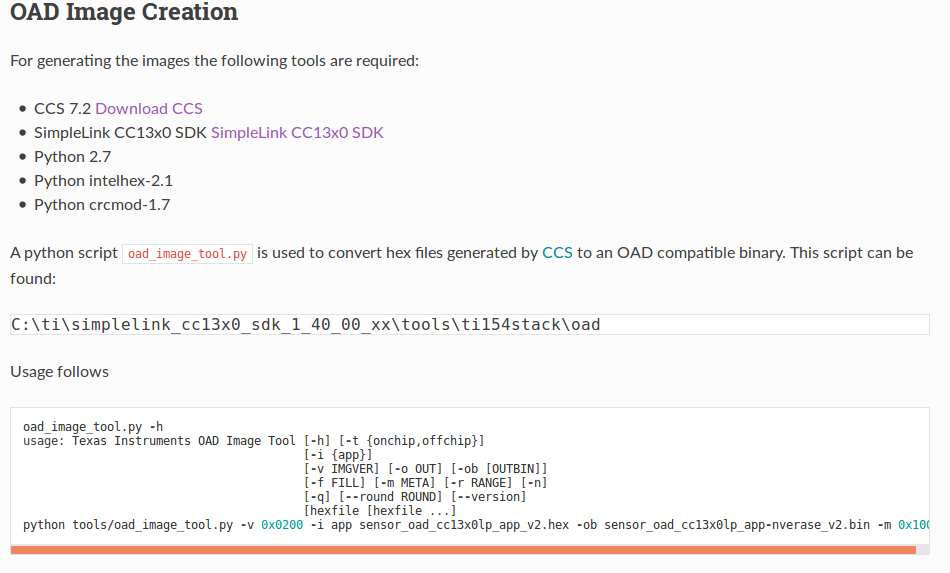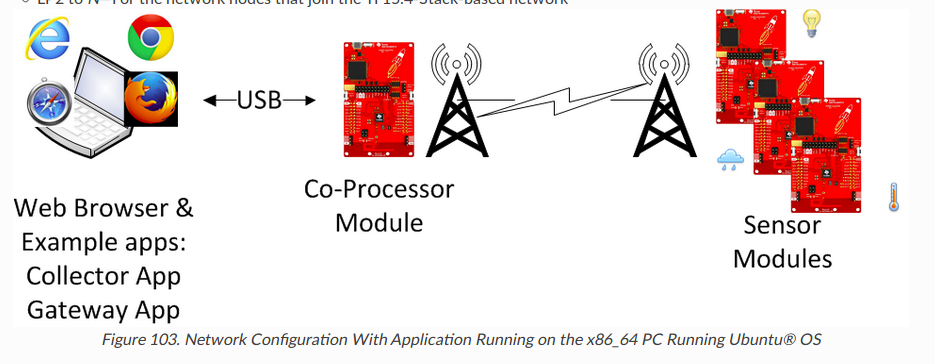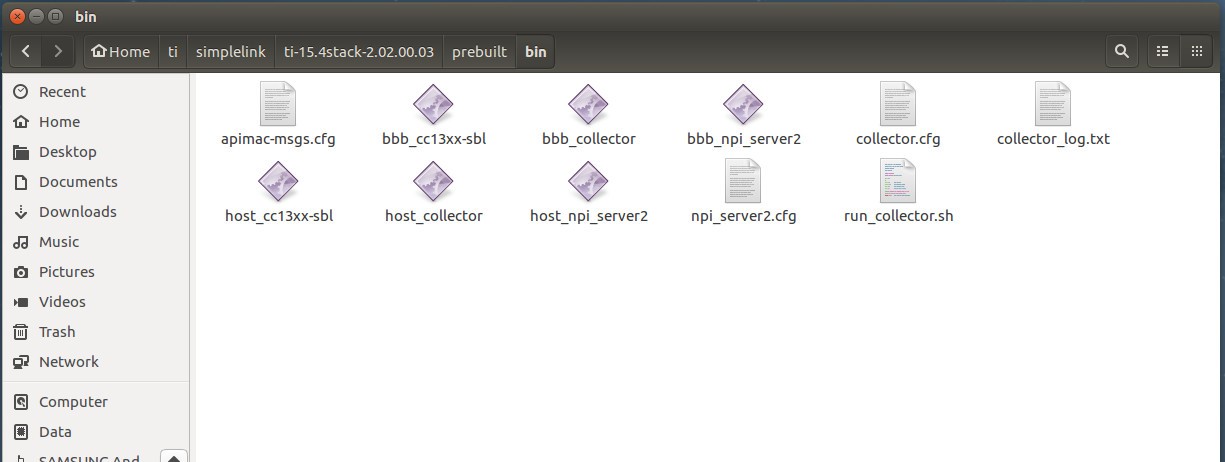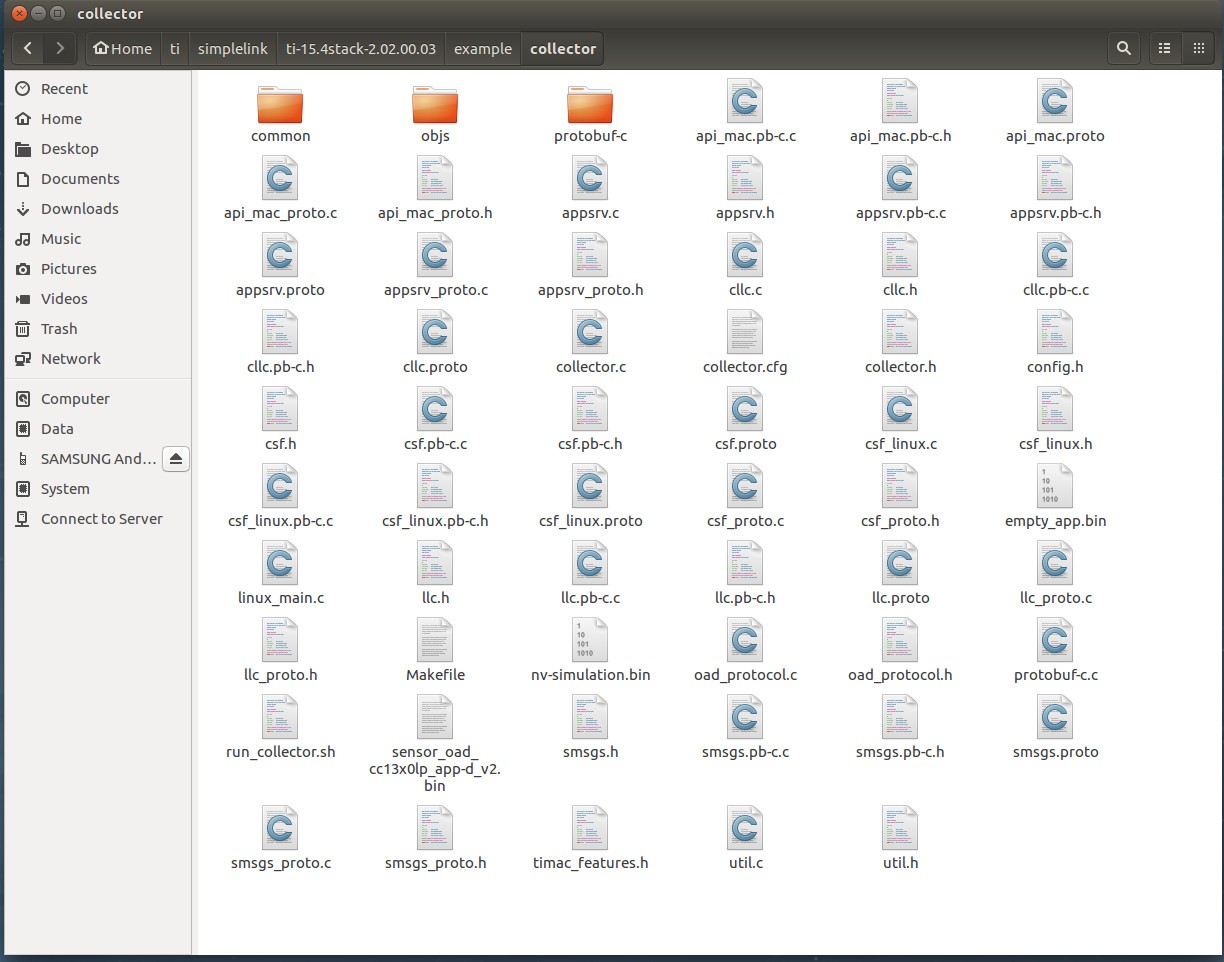Other Parts Discussed in Thread: CC1310
Tool/software: Linux
Hi all,
I'm starting to work with SimpleLink™ Sub-1 GHz CC13x0 Software Development Kit 1.40. My major focus is on 15.4 stack OAD. As I'm going through the documentation, It mentioned that " The collector application must run on a linux machine using TI 15.4-Stack Linux SDK". Up to now I was using window for development. I have following problems regarding this in need of asap answers. :-).
1. Do I have to use the same collector example in collector LP with sensor OAD example in sensor LP in the example folder?
2. Is there any pre-considerations or requirements needed other than installing CCS, SDK, SmartRF in linux to try out the example system?








